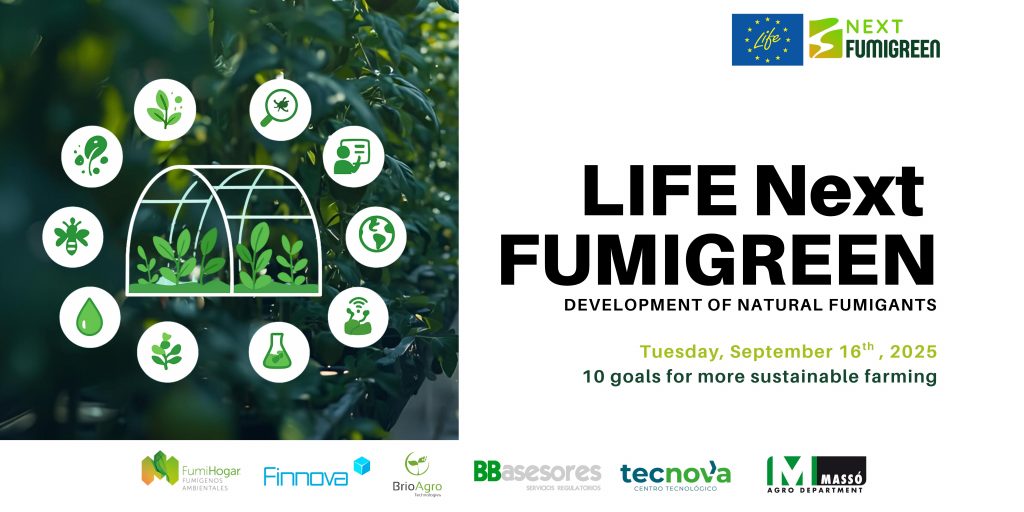The European project is already carrying out field trials, developing conservation protocols and training farmers to replace chemical pesticides with plant-based biopesticides
Brussels, 16 September 2025. The European project LIFE NextFUMIGREEN, co-funded at 60% by the LIFE programme of the European Union, continues to make progress towards its 10 specific objectives, defined in 2022, to replace chemical pesticides with natural fumigants in greenhouse horticultural crops.
With a total budget of €2,758,921.01 and a duration of four and a half years, the project is now in a key phase of field validation, farmer training and environmental impact assessment.
Milestones achieved to date include:
- Trials in experimental and commercial greenhouses to assess the effectiveness of new natural fumigants against pests such as whitefly, aphids, thrips, and Tuta absoluta..
- Development of adapted formats for different types of greenhouses, ensuring safe and effective application.
- More than 600 farmers and distributors trained in the use of biopesticides, environmental regulations, and risk prevention, thanks to over 20 training and demonstration activities already underway.
- Life Cycle Assessment and carbon footprint analysis, comparing the new products with conventional pesticides, with preliminary results confirming a significant reduction in toxicity and pesticide residues in soil and water.
Expected impacts include the reduction of around 200 kg of toxic and persistent substances, as well as the decrease of pesticide residues in 1.1 km² of soils and 11 km² of irrigation water by the end of the project. These figures are expected to multiply tenfold in the following three years thanks to the continuity of the technology.
The project is led by FumiHogar, in collaboration with B&B Asesores, Comercial Química Massó, BrioAgro Tech and Fundación Finnova, with the support of CINEA – European Climate, Infrastructure and Environment Executive Agency.
LIFE NextFUMIGREEN thus demonstrates that agricultural innovation can become a tangible reality, offering safer solutions for crops, workers and the environment, while contributing to the objectives of the European Green Deal.

